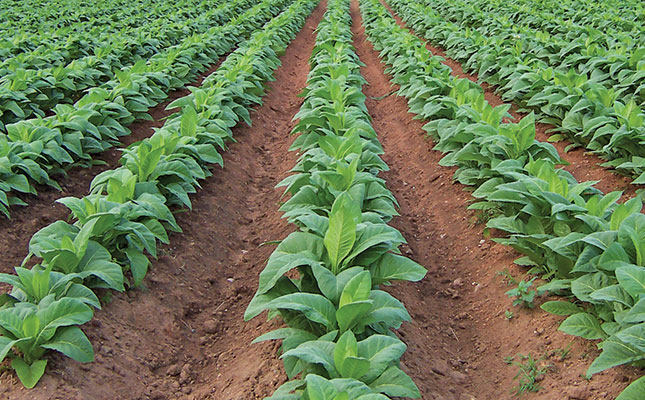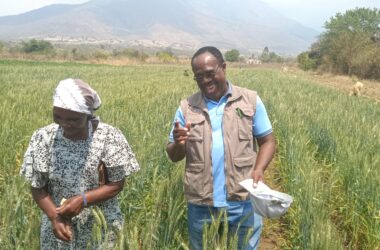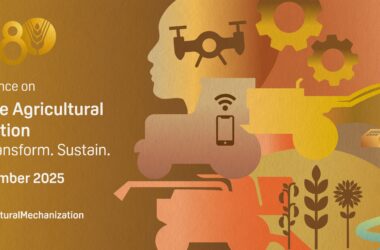By Conrad Mwanawashe

Many indigenous farmers in Zimbabwe and Africa own land only but do not own the economics of land and the means of production making them vulnerable to knavish contractors who leave the farmers with crumbs from the farming operations.
Could contract farming therefore be modern-day slavery?
The smallholder farmers, according to various research, have earned only crumbs while contracting companies milk off huge profits, with farmers being cows milked for their milk, according to Mukasiri Sibanda, Coordinator of the Stop the Bleeding Consortium.
“As it stands, it’s like we are going to milk you, leave a bit of milk for you, but cheese and yoghurt are not yours. We are being treated like cows,” said Sibanda.
“This tells you that something is not working. There is an element of unequal exchange. Structural barriers still persist. There is a system that says you are independent but you cannot claim control over your assets,” added Sibanda.
While the emergence of contract farming in the agriculture sector was viewed as a positive stride in bridging the financial gap and an alternative source of funding for small-scale farmers who were struggling to get credible lines of credit from banks and other financial institutions, it has not yielded positive results on the side of the farmers.
In its March 2023 Policy Digest, titled: Towards trade justice and sustainable rural livelihoods in the cotton value chain Zimbabwe, the Zimbabwe Coalition on Debt and Development (ZIMCODD), noted that the growth in cotton yield in Zimbabwe and Zambia failed to improve the livelihoods of the small-scale farmers.
A survey conducted by ZIMCODD in Mahenye, Maparadze, Chikono, Gokwe and Checheche revealed that “the proceeds of contract farming are only benefiting contracting companies”.
“There is an uneven distribution of profit as small-scale farmers’ proceeds are all going towards debt servicing. This is because contract farming systems are profit-driven and calibrated to exploit small-scale farmers. Small-scale farmers are thrown into a vicious cycle of debt and more vulnerable,” said ZIMCODD.
Unfair trade practices and manipulation by middlemen, according to ZIMCODD, meant that the increase of small-scale cotton output from 18 797 in 1993 to 92 769 tonnes in 1997 did not benefit small-scale farmers, the agony and plight which present-day small-scale cotton farmers are experiencing.
“Ironically, the tremendous growth of the cotton industry did not translate to the transformation of the Zimbabwean communities but rather into poverty and manipulation. At one point, Zimbabwe was the largest producer of cotton in Southern Africa yet the benefits thereof, did not cascade down to the small-scale farmers, illustrating the trade injustices in the cotton value chain,” ZIMCODD added.
Trade injustice is not only confined to cotton production. The tobacco sector, the top foreign currency earner for Zimbabwe has had its own fair share of challenges.
Tobacco is predominantly grown under contract farming, with 94 per cent of communal area farmers and 99 per cent of resettled farmers growing tobacco under this arrangement and this has seen the prevalence of illicit trades probably more than any other crop, according to Dr Toendepi Shonhe, a political economist and researcher at the Thabo Mbeki African School of Public and International Affairs, University of South Africa.
The working paper titled: Covid-19 and The Political Economy of Tobacco and Maize Commodity Circuits: Makoronyera, the ‘Connected’ and Agrarian Accumulation in Zimbabwe was published by the Future Agricultures Consortium, an Africa-based alliance of research organisations seeking to provide timely, high-quality and independent information.
The study was carried out with funding provided by the Agricultural Policy Research in Africa (APRA) consortium.
Dr Shonhe, however, said that formal contract sales were far lower in 2020, at 30.3 per cent of total sales, reflecting “the high prevalence of illicit trading, which begins with makoronyera at the farms through to the auction floors and illicit exports that are led by well-connected individuals”.
“Illicit tobacco trade is most prevalent between Zimbabwe, as the biggest tobacco producer in Africa and its neighbouring countries, with South Africa being the most significant market,” noted Dr Shonhe.
The study was carried out in Mvurwi, a farming area in Mazowe district in Mashonaland Central Province, about 100km north-west of Harare and traces the circuits of maize and tobacco, the two major crops for food security and foreign currency earnings in Zimbabwe.
Zimbabwe is reported to have lost billions of dollars through illegal trade. For example, South Africa is said to have lost R27 billion in tax revenue on the back of Zimbabwean tobacco illicit trade in the country between 2010 and 2016, according to the study.
“The ascendance of makoronyera – who offer to buy the crop at various stages (reaping, curing, grading, and marketing) – paying the full value in US dollars, has been on the rise since 2016. In the past, makoronyera have also been accused of manipulating the auction processes in collusion with buyers at the auction floors in Harare.
“However, the rise of makoronyera in the marketing process and, ultimately, the illicit export of tobacco connected to ‘a coalition of political actors’, undermines the growers and promote illicit capital accumulation by a few ‘untouchables’,” according to Dr Shonhe.
However, TIMB, said it has put in place some “key strategies to tackle the issues of misinvoicing and transfer pricing that have been negatively impacting the tobacco industry”.

Pic credit-Tnash Photography
“Among the strategies are the Compliance Administrative Framework that was implemented in 2021 and the setting up of a new Compliance Administration Department.
“The Compliance Administrative Framework is there to ensure all contracting companies fund farmers with inputs that are within the approved cost ranges as guided by the prevailing input costs as set by the Ministry of Industry & Commerce.
“Before contracting commences, all interested companies submit their commitment documents which show their capacity to contract for the season which includes proof of funding, unit cost of inputs to be given to farmers and the interest component to be charged,” TIMB Acting CEO Emmanuel Masvaure said.
“Such commitment documents are then vetted by our Compliance and Licensing Committee and if any document is found to be in violation of the Board’s compliance standards it will be rejected and no approval to contract farmers will be given. Only those who have passed the Board’s vetting process will be approved to contract farmers. With such (measures) in place, the Board leaves no room for growers to be shortchanged through transfer pricing and misinvoicing among other issues,” Masvaure added.
But Sibanda of the Stop the Bleeding Consortium argued that contract farming locks a farmer to sell product to one contractor who usually predetermines prices and this disempowers the farmer.
“Some foreign contracting companies inflate inputs prices, seed, fertiliser and chemical prices to farms, which means that they are transferring value to the producers based outside Zimbabwe.
You would expect that if we have the land, the means of production then we should be focusing on making food as cheap as possible. Food is expensive because prices are manipulated by the means of production, insurance, seeds and priorities themselves.
“Tobacco is undervalued at the auction or contract floors. Those under contract farming will have been locked already through forward exchange contract pricing, meaning that regardless of what happens in the market, the price has already been predetermined. You will also have been locked to sell to one buyer and the absence of a competitive market means that buyers enjoy the advantages of oligopoly,” said Sibanda.
UNCTAD, in a report titled: Tackling illicit Financial Flows for sustainable Development in Africa, said IFFs imply an unequal distribution of wealth, which leads to higher levels of poverty and inequality.
The channels through which IFFs undermine efforts to reduce poverty mainly relate to a loss of government revenue, leading to lower levels of expenditure on education, health and infrastructure, but also to negative externalities on labour productivity arising from export underinvoicing.
To deal with IFFs, Sibanda said government should address corruption, among other measures.
“Dealing with corruption is important because corruption enables illicit financial flows. The impact of corruption as a facilitator of illicit financial flows by multinational corporations and criminal activities is huge,” said Sibanda.
“This story was produced by Conrad Mwanawashe. It was written as part of Wealth of Nations, a media skills development programme run by the Thomson Reuters Foundation. More information at www.wealth-of-nations.org. The content is the sole responsibility of the author and the publisher.”










